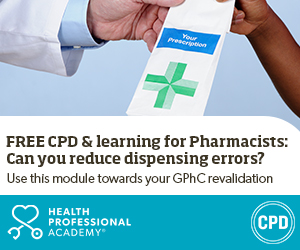The UK’s health regulator has received 69 reports of gambling or gambling disorder suspected to be caused by aripiprazole in the last 14 years
The Medicines and Healthcare products Regulatory Agency (MHRA) has reminded healthcare professionals prescribing aripiprazole to alert patients about its possible side effects, following a rise in the number of reports of gambling disorder associated with the drug.
Patients taking aripiprazole, which is used for the treatment of schizophrenia and bipolar disorder, are at risk of developing unusual urges or cravings that they cannot resist, including behaviours such as addictive gambling, excessive eating or spending, or an abnormally high sex drive.
The regulator has received 69 reports of gambling or gambling disorder suspected to be caused by aripiprazole in the last 14 years via the Yellow Card Scheme, out of which 32 were received between 1 January and 31 August this year.
Alison Cave, MHRA Chief Safety Officer, said: “The number of reports for suspected gambling and other impulsive behaviours associated with aripiprazole are small in comparison to the frequency with which it is prescribed, but the consequences for any patient developing these conditions can be significant.”
However, he noted that it is an effective and acceptably safe drug for many people, and patients should not stop taking the medicine without medical advice.
Reports of suspected addictive gambling included patients both with and without a history of problem gambling.
In most cases, the urges or cravings resolved on reducing the dose or stopping treatment with the drug.
Prof Henrietta Bowden-Jones OBE, Director of the National Problem Gambling Clinic, said: “Clinicians prescribing Aripiprazole must commit to consistently alert patients about these potential risks, both during the initial prescription and follow-up reviews. A significant number of patients with gambling disorder seen at the National Problem Gambling Clinic were unaware of the risks as their mental health teams had not alerted them.
“Many had not undergone periodic reviews to assess any new symptoms of gambling disorder or other compulsive behaviours that were not present before the prescription started.”
Patients are advised to speak to their doctor, pharmacist or nurse if they suspect they are having a side effect from this medicine, and also report it to the Yellow Card scheme.







